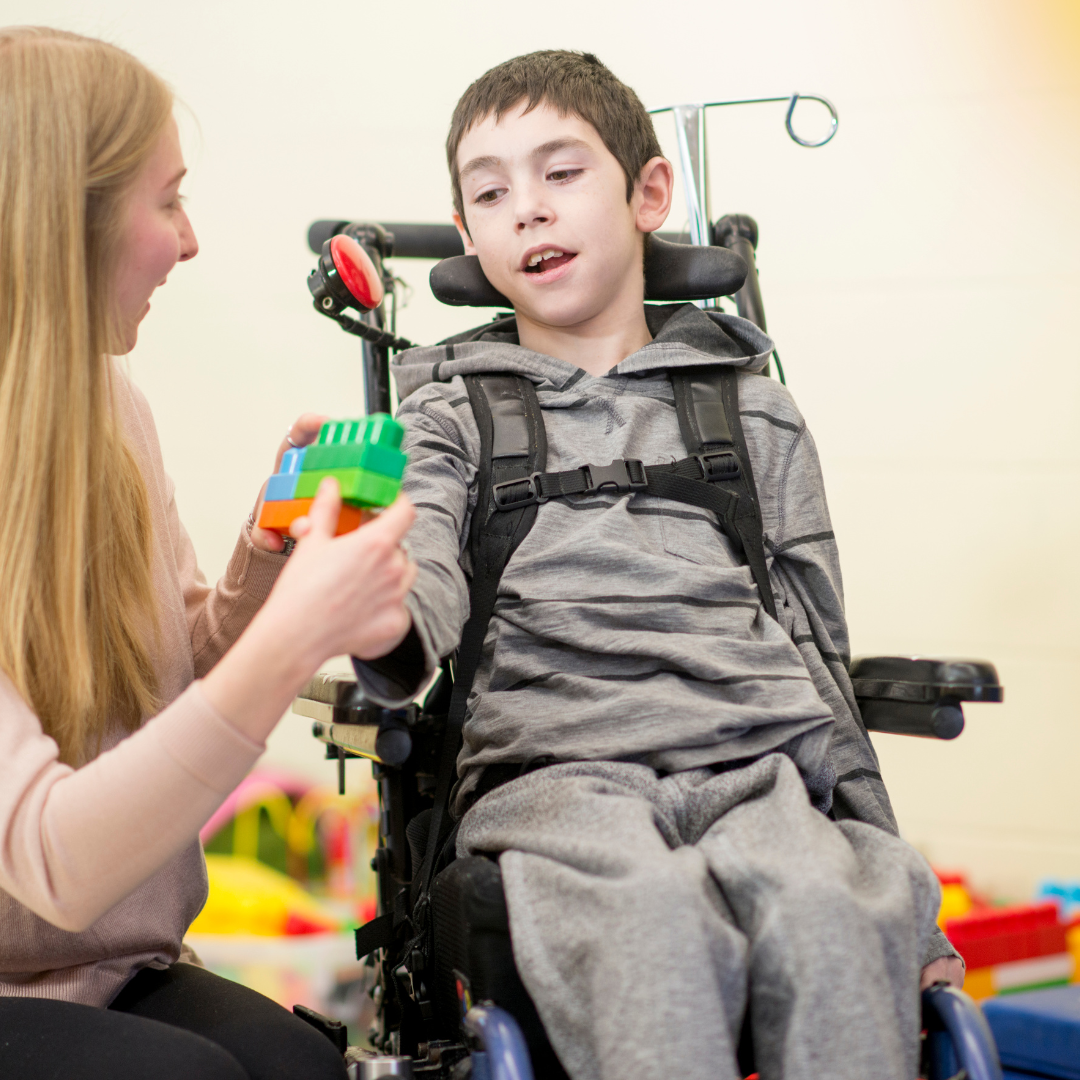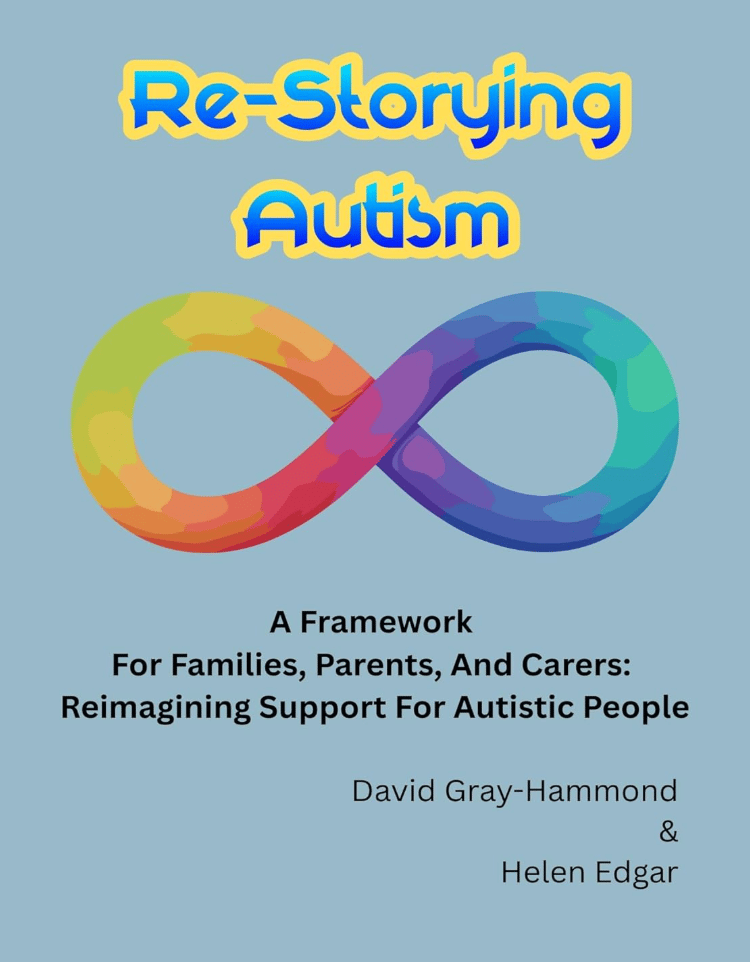(Blog based on a presentation I delivered to London Met University 14th March 2025, updated April 24th 2025 following the research published by….
Introduction
The Special Educational Needs and Disabilities (SEND) system is designed to support children with additional needs, yet for many neurodivergent families, it presents more barriers than solutions. Families navigating this system often find themselves battling against long delays, rigid eligibility criteria, and a lack of understanding from professionals who do not understand the lived experience of being Autistic.
“Successful partnerships between families and schools can substantially improve children’s success in and out of school. Yet parents of autistic children often report considerable challenges with their children’s education. ”
“This research (Rabba et al. 2024) showed how difficult it can be for autistic families to interact with teachers and schools and the impact this can have on the whole family. It also showed us that strong, trusting relationships between school and families are possible – when autistic parents feel safe, and when their knowledge and lived experience are taken seriously by educators.”
Rabba, A. S., et al. (2024). ‘I’m sick of being the problem’: Autistic mothers’ experiences of interacting with schools for their autistic children. Autism, 0(0). https://doi.org/10.1177/13623613241297223
From before children even start nursery in Early Years, Autistic children are being denied their authentic ways of being and the support they need. They are often seen as ‘less than’, and parents are left feeling they are somehow failing when they are not ‘school ready‘. Some children are classed as being disruptive in school, described as being problems, not meeting standards and expectations in the way they learn and present their work. Masking is enforced and rewarded so children feel they can fit in with their peers, to try and gain an extra star on a reward chart and to be ‘normal’ at almost any cost. Masking is harmful and detrimental to mental health and well-being; it can lead to serious burnout, where children then become disengaged with education, unable to continue to carry on, and have no more capacity left for life beyond survival mode, let alone to access a meaningful education and have any quality of life.
Instead of getting the support they need after trying to fit in and do the best they can in an environment that is not really set up for Autistic people, students are labelled then as “school refuses” when they can no longer attend school. Parents can find themselves fined and blamed for their children’s non-compliance and what is seen to be ‘challenging behaviour’. Parents/carers can be left feeling that their parenting is somehow wrong or not right – when, in fact, neurodivergent families have different needs, and we need a better understanding of Autism and for people to embrace neuro-affirmative practice.
The Broken System: When Services Fail to Support Families
Families rely on the SEND system for vital resources such as Education, Health, and Care Plans (EHCPs), school accommodations, and mental health services. However, systemic failures leave many neurodivergent people without the support they desperately need. Key barriers include:
- Long delays in assessments and service provision.
- Rigid eligibility criteria that deny essential support.
- A lack of neuro-affirming Autism-informed professional training which leads to inappropriate and potentially harmful interventions.
Recent statistics highlight the crisis:
- The number of pupils with EHCPs in mainstream schools rose by 17% in 2024, reaching approximately 241,000.
- One in five pupils in England are missing at least one day of school every two weeks, revealing a failure to provide adequate support.
- 1.3 million young people were referred to mental health services last school year – up 71% in five years. That’s the highest number since records began (Young Minds)
- The average waiting time for CAMHS has more than doubled since 2019. Only 1% of the NHS budget goes towards young people’s mental health. (Young Minds)
Instead of proactive neuro-affirming assistance, families are finding themselves battling for basic rights, leading many to utter exhaustion and distress. This is not due to poor parenting or lack of knowledge but due to systemic issues and a lack of awareness and understanding of Autism from a neuro-affirming perspective and people believing our experiences as an Autistic family. As a mother and former teacher, I have experienced and am still experiencing this struggle, Having resigned from my career to become a full-time carer, I have faced immense financial and emotional strain and it has had a huge impact on my mental health and well-being . This affects the whole family, it creates ripples that flow out into work places, wider friendships and family networks.
The Parent-Blame Culture and Its Emotional Toll
A significant issue within SEND and mental health services is the culture of parent-blame. Despite my professional background as a teacher, I have found that when advocating for my own children, Ihave often felt doubted and left feeling devalued. Parents are often:
- Labeled as “overanxious” or “overprotective.”
- Blamed for their child’s struggles rather than receiving appropriate support.
- Criminalized for school attendance issues instead of having their child’s distress acknowledged and people working collaboratively to find ways to support.
The consequences of parent-blame are severe:
- Breakdown of trust between families and professionals.
- Delayed and inappropriate interventions which can harm children’s education and mental health (and parents mental health and careers).
- Increased parental resignation from work, leading to financial hardship and family crises.
Caregiver Burnout: The Hidden Crisis
The research by Sandin (2017) highlighted that Autistic children are far more likely to have at least one Autistic parent, when we are thinking about the needs of Autistic children we need to be thinking about how we can also best meet the needs of their parents too and considering if they too may be Autistic (even if not identifying or diagnosed). People need to consider how they can communicate more effectively with neurodivergent families, think about how parent/carer meetings are conducted – have some flexibility and think about parental communication preferences too. Not accommodating the needs of neurodivergent parents contributes to parental stress and burnout.
Neurodivergent parents often experience chronic burnout and it can lead to severe mental health difficulties. Balancing children’s needs with a constant fight against an inaccessible system that only values neuronormative expectations is beyond exhausting.
Without systemic change, families will continue to struggle , often in isolation, leading to severe long-term consequences for parents/carers and a downward spiral for the whole family.
65% of working parents experienced burnout with a severe impact on their mental health
Despite feeling they are at breaking point, nearly three-quarters (73%) of carers with bad or very bad mental health are continuing to provide care – because we have to, whilst we can, in whatever way we can. Online communities can provide great support for those who can access this, but it is not enough of a support network. More significant change is needed.

A new UK study by Mullally and Connolly (2025), “I felt shamed and blamed”: an exploration of the parental lived experience of school distress’, validated the sad reality of everything I have shared so far and reveals the profound impact that school distress has not only on neurodivergent children, but also on their parents. Researchers found that half of all parents supporting a child struggling with school attendance developed a new mental health condition. Many described the experience as the second most threatening life event in their lives.
The study paints a sad, heartbreaking, and all too familiar picture of the emotional toll advocating for your neurodivergent child has on parents/carers:
- 78% of parents said they were not believed by school staff.
- Many reported feeling blamed, disempowered, and subjected to hostile or punitive treatment.
- This led to heightened levels of anxiety, depression, and a persistent sense of fear and dread.
Dr Sinéad Mullally, lead author from Newcastle University, highlighted that these mental health struggles are not a cause but a consequence of the school distress experience. “This challenges the narrative that ‘school refusal’ stems from poor parenting,” she said. “It’s the act of supporting a distressed child within a non-inclusive system that imperils parental mental health.”
Key statistics:
- In the 2022–23 school year, 1 in 50 students in the UK missed more than half of their school days.
- Almost 95% of students in a key sample missed school regularly due to severe emotional distress.
- Many of these students were identified as autistic or neurodivergent.
The findings underscore a systemic issue within UK education—a lack of inclusivity that fails to support neurodivergent children and their families. With trust between parents and schools breaking down, families are left isolated at one of the most vulnerable times in their lives.
Understanding the Double Empathy Problem
I feel a key failure of the SEND system is its disregard for the Double Empathy Problem (Milton, 2012) —the idea that communication breakdowns between Autistic and non-Autistic people occurs both ways, rather than being a deficit of autism alone (alongside all other aspects of intersectionality that can impact lived experience and affect communication differences). Parents advocating for their children are dismissed as “difficult” instead of being valued as experts in their child’s needs.
How does the Double Empathy Problem affect families?
- Autistic communication is often misinterpreted, leading to disbelief of shared stories, which can lead to distress and in the worst case scenarios, accusations of Fabricated and Induced Illness as the report by Luke Clements and Ana Laura Aiello (2023) highlight:
- Disabled (including Autistic/ neurodivergent) parents 4x as likely to be accused of FII than non-disabled parents
- 58% of allegations happen after a parent has complained
Embracing Monotropism: A Strengths-Based Approach
As I have mentioned, the SEND system is still deeply rooted in a medical-pathological model, primarily viewing Autism as a deficit despite some attempts of inclusion in many settings, it is not enough. We need a complete reframing of how Autism is understood. We need better training for professionals working in education, health, and social care to understand neurodivergent communication styles and recognise and value Autistic ways of being instead of pathologizing differences.
As the saying goes, you can’t pour from an empty cup, Autistic parents need support so they can support their children. Everyone will benefit from a neurodiversity-affirming approach.

What is Monotropism?
Monotropism, a theory developed by Dinah Murray, Mike Lesser, and Wenn Lawson in the 1990s, and provides a neuro-affirming framework for understanding Autism. It suggests that Autistic individuals focus intensely on fewer interests at anyone time, leading to deep engagement and intense flow and perhaps can also explain some of the challenges Autistic people face when not in the right environment such as: transitions, inertia, communicating, executive functioning, sensory and social overwhelm.
Finding out about monotropism has transformed my perspective of Autism as both a parent and educator. It validated my parenting, exposed the flaws in behaviourist approaches, and fueled my advocacy for more student-led, interest-based learning. It helped me reframe my own mental health difficulties as being the result of being monotropic in a world that prioritises neuronormative polytropic processing.
Embracing Monotropism is a way of being neuro-affirming
By embracing the theory of monotropism in education, health and social care it can help to:
- Recognize and nurture authentic Autistic monotropic processing and ways of being – validating lived experiences and supporting well being for Autistic parents and carers.
- Re-design school environments and curriculums that prioritize flexible, student-led, interest-based learning and meet monotropic learners’ dynamic fluctuating sensory, social and communication needs.
- Shifts away from rigid behavioural interventions that cause harm and only honour neuro-normative ways of being and conforming to neuro-typical expectations.
What Needs to Change?
- End parent-blame: Acknowledge that the system is failing, not the families.
- Listen to Autistic young people and their caregivers: Believe their experiences.
- Value the theory of monotropism – a strength-based neuro-affirming theory by researched by Autistic people.
- Recognize and change distressing school environments instead of punishing students for attendance and struggles with meeting neurotypical expectations.
- Eliminate outdated behavioural interventions (e.g., PBS, social skills training) that force Autistic individuals to mask and conform, which can lead to burnout.
- Educate professionals using current research and shared stories from lived Autistic experiences.
Change the environment, not the child, not the parent/ carer
As Luke Beardon’s equation states:
Autism + Environment = Outcome
If we create supportive, accepting environments, Autistic students and their families will have a better chance of being able to thrive.
Find out more:
Read: Top 5 Strategies for Neuroaffirming Practice
Read: Supporting Young People Through Burnout at Home and In School
Need support and ideas as a parent/carer?
Not Fine In School
www.notfineinschool.co.uk
Define Fine
www.definefine.org.uk/
Heidi Mavir – EOTAS Matters
www.heidimavir.com/forfamilies
Spectrum Gaming Courses
www.spectrumgaming.net/autism-acceptance
Neurobears online
www.pandasonline.org/
Beardon, L. (2022). What works for autistic children. Sheldon Press.
Need support and ideas as a professional?
Square Peg
www.teamsquarepeg.co.uk/
Learning About Neurodiversity at School (LEANS)
www.salvesen-research.ed.ac.uk/leans
Belonging in School
www.inclusion.mrc-cbu.cam.ac.uk/
Spectrum Gaming: Anti-behaviour behaviour policy and more!
www.spectrumgaming.net/post/anti-behaviourism-behaviour-policy

Further Reading:
Arnold, S. R., Higgins, J. M., Weise, J., Desai, A., Pellicano, E., & Trollor, J. N. (2023). Confirming the nature of autistic burnout. Autism, 27(7), 1906–1918. https://doi.org/10.1177/13623613221147410
Beardon, L. (2022). What works for autistic children. Sheldon Press.
Clements, L., Aiello, A. L., Cerebra, Disability Law Service (DLS), & Leeds University. (2023). The prevalence and impact of allegations of Fabricated or Induced Illness (FII). https://cerebra.org.uk/wp-content/uploads/2023/11/FII-Final-report-2023-Nov-01.pdf
Connolly, S. E., Constable, H. L., & Mullally, S. L. (2023). School distress and the school attendance crisis: a story dominated by neurodivergence and unmet need. Frontiers in Psychiatry, 14. https://doi.org/10.3389/fpsyt.2023.1237052
Edgar, H. (2023a, September 7). Embracing autistic children’s monotropic flow states — neurodiverse connection. Neurodiverse Connection. https://ndconnection.co.uk/blog/embracing-autistic-childrens-monotropic-flow-states
Edgar, H. [Autistic Realms]. (2023b, September 27). Supporting your young person through autistic burnout. THINKING PERSON’S GUIDE TO AUTISM. https://thinkingautismguide.com/2023/09/supporting-your-young-person-through-autistic-burnout.html
Garau, V., Woods, R., Chown, N., Hallett, S., Murray, F., Wood, R., Murray, A. L., & Fletcher-Watson, S. (2023). The Monotropism questionnaire. OSF. https://doi.org/10.17605/OSF.IO/WPX5G
Gray-Hammond, D., [DGH Neurodivergent Consultancy, Autistic Inclusive Meets, ND Social Care & Family Services, Autistic and Living the Dream, & London Autism Group Charity]. (2024). Report on Quantitative Findings of a Survey of Autistic experiences of Child and Adolescent Mental Health Services. https://emergentdivergence.com/wp-content/uploads/2024/04/CAMHS-Report-2024.pdf
Gray-Hammond, D., (2023e, July 28). Autistic Parenting: Supporting our Autistic children’s mental health when services won’t – Emergent Divergence. Emergent Divergence. https://emergentdivergence.com/2023/07/28/autistic-parenting-supporting-our-autistic-childrens-mental-health-when-services-wont/
Gray-Hammond, D., (2024, March 6). Autistic Parenting: Parenting through burnout. Emergent Divergence. https://emergentdivergence.com/2024/03/06/autistic-parenting-parenting-through-burnout/
Gray-Hammond, D., (2024a, February 28). CAMHS & Parent Blame: The impact on the Autistic family. Emergent Divergence. https://emergentdivergence.com/2024/02/28/camhs-parent-blame-the-impact-on-the-autistic-family/
Heasman, B., Williams, G., Charura, D., Hamilton, L. G., Milton, D., & Murray, F. (2024). Towards autistic flow theory: A non‐pathologising conceptual approach. Journal for the Theory of Social Behaviour. https://doi.org/10.1111/jtsb.12427
Keer, M. (2024, July 24). Depressingly awful data and our 2024 EHCP Hall of Shame reveal the sad state of disabled children’s education, with growing numbers out of school. Special Needs Jungle. https://www.specialneedsjungle.com/depressingly-awful-data-2024-ehcp-hall-of-shame-reveals-sad-state-disabled-childrens-education/
Milton, D. E. (2012). On the ontological status of autism: the ‘double empathy problem.’ Disability & Society, 27(6), 883–887. https://doi.org/10.1080/09687599.2012.710008
Murray, F. (2018) Me and Monotropism: A unified theory of autism. BPS. https://www.bps.org.uk/psychologist/me-and-monotropism-unified-theory-autism
Murray, D., Lesser, M., & Lawson, W. (2005). Attention, monotropism and the diagnostic criteria for autism. Autism, 9(2), 139–156. https://doi.org/10.1177/1362361305051398
Murphy, S. (2024, November 7). Recent research on Fabricated or Induced Illness (FII). Autistic Parents UK. https://www.autisticparentsuk.org/post/recent-research-on-fabricated-or-induced-illness-fii
O’Halloran, L., Coey, P., & Wilson, C. (2022). Suicidality in autistic youth: A systematic review and meta-analysis. Clinical Psychology Review, 93, 102144. https://doi.org/10.1016/j.cpr.2022.102144
Pearson, A., & Rose, K. (2023). Autistic masking: Understanding Identity Management and the Role of Stigma. Pavillion Publishing.
Phung, J., Penner, M., Pirlot, C., & Welch, C. (2021). What I wish you knew: Insights on burnout, inertia, meltdown, and shutdown from autistic youth. Frontiers in Psychology, 12. https://doi.org/10.3389/fpsyg.2021.741421
Rabba, A. S., et al. (2024). ‘I’m sick of being the problem’: Autistic mothers’ experiences of interacting with schools for their autistic children. Autism, 0(0). https://doi.org/10.1177/13623613241297223
Rosqvist, H. B., Hultman, L., & Hallqvist, J. (2023). Energy management. Alter, 17–3, 25–38. https://doi.org/10.4000/9ifu
Shepherd, J., Sutton, B., Smith, S., & Szlenkier, M. (2024). ‘Sea‐glass survivors’: Autistic testimonies about education experiences. British Journal of Special Education, 51(2), 142–155. https://doi.org/10.1111/1467-8578.12506
“We are robbing children of their childhoods” – new data reveals years-long waits for children’s autism diagnoses | Children's Commissioner for England. (2024, October 17). Children’s Commissioner for England. https://www.childrenscommissioner.gov.uk/blog/we-are-robbing-children-of-their-childhoods-new-data-reveals-years-long-waits-for-childrens-autism-diagnoses/
Wood, P. (2025, January 24). School absence increases despite Labour’s pledge to usher in ‘new era for attendance.’ The Telegraph.
Find out more about behaviourism
and why it is harmful:
Find out more about why behaviourism is harmful
Discover alternative ways to behaviourism
Check out the new website:
Barriers to Education
Barriers to Education – A free, neuro-affirming resource created by the Spectrum Gaming Team, offering practical tools and frameworks to help schools and families understand and reduce barriers to attendance.
It’s built around the WARMTH Framework (Wellbeing, Affirming Practice, Relational Approach, Mutual Understanding, Timely Response, Holistic Support) and includes co-produced guidance on topics such as burnout and recovery, which I was honoured to support alongside many other volunteers.
Check out the website: barrierstoeducation.co.uk














